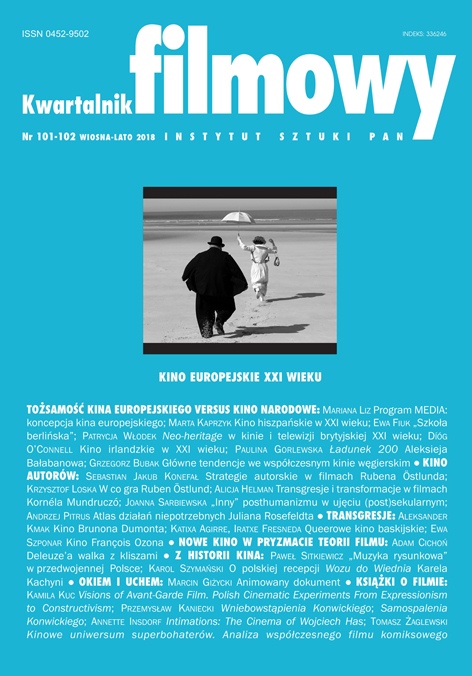„Wszystko, co straszne, pragnie naszej miłości”. „Inny” posthumanizmu w ujęciu (post)sekularnym. (przyczynek)
“Everything Terrible Is Something That Needs Our Love”. The Post-Humanist ‘Other’ In the (Post)Secular Understanding. (The Contribution)
Author(s): Joanna SarbiewskaSubject(s): Fine Arts / Performing Arts, Visual Arts, Film / Cinema / Cinematography
Published by: Instytut Sztuki Polskiej Akademii Nauk
Keywords: Mundruczó Kornél; post-humanism;post-secular;
Summary/Abstract: The author, using the example of the analysis of the film “White God” (2014) by Kornél Mundruczó, proposes a (post)secular interpretation of post-humanism. In this approach, at stake is the understanding of non-identity (difference) not in the perspective of religious/anthropocentric chauvinism (rightly criticized by post-humanists), but in the perspective of “kenosis”: as a transcendence/transgression of the limits of one’s subjectivity, regardless of its attributes: “Bios” or “Zoe”, and true opening to the Other. The gesture of “kenosis” would thus be a deconstruction of both the process of “exclusion” and “oikoization” (familiarization) of the Other (“unheimlich”). The affirmation of the Other, constituting itself in the act of ontological Love, establishes as conditions the abandonment of the attitude of appropriation and the ecstatic emerging “beyond oneself”. In author’s opinion, the recognition of the equality of modes of existence of human and non-human beings, in accordance with the postulate of post-humanism, should meet with the (post)secular affirmation of the inscrutability of (each) Other.
Journal: Kwartalnik Filmowy
- Issue Year: 2018
- Issue No: 101-102
- Page Range: 197-202
- Page Count: 6
- Language: Polish

